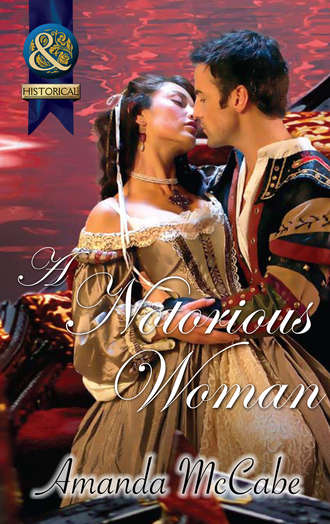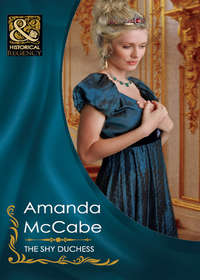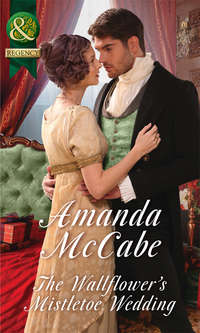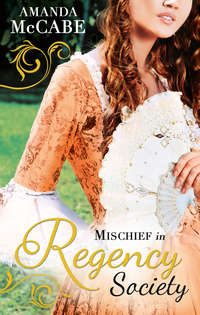
Полная версия
A Notorious Woman
He was tall, with powerful shoulders outlined by a fine doublet of dark red velvet, closely cut and unadorned by lace or embroidery. A shirt of creamcoloured silk, soft and with the sheen of springtime clouds, peeked through the jagged slashings of the sleeves and the silk closures at the front of the doublet, rising up to a small frill framing a strong, sun-browned throat, a vee of smooth bronze chest.
Julietta’s gaze moved inexorably, unwillingly, downwards to plain black hose and Spanish leather shoes buckled with shining gold. No elaborate codpieces shaped like a conch shell or a gondola to display and enhance his masculine equipment, no gaudy striped hose. No popinjay, him. Yet not a man unaccustomed to luxury, either. Her regard slid back upwards, past the narrow hips, the powerful shoulders, the muscled chest. His face was cast half in shadow by the brim of his red velvet cap, but she could see the large, blood-coloured ruby clasped in that cap, the teardrop pearl that dangled from his left earlobe. No—not unaccustomed to luxury at all.
Glossy, dark brown hair, streaked with the gold of the sun, fell in thick waves from beneath the cap, brushing his shoulders. And his lower face could be glimpsed, a strong jaw, close shaven, darkened by the sun, set off by the glistening white of the pearl. Not a soft merchant, then, or a banker who spent his days softly indoors. Not a churchman, assuredly, yet not a poor sailor or shipmaker from the Arsenal.
A man of power, certainly, of wealth and fine looks. Not a man who drenched himself in cologne, either; Julietta’s sensitive nose told her that, even across the length of the shop. He smelled only of fresh, salty air, faintly lemony, clean. What would such a man need from her shop?
Ah, yes—of course. A gift for a lady. And here she stood, staring at him like a lackwit, gawking at his shoulders and chest and lovely hair as some alleyway putta would.
Julietta straightened herself to her full height, reaching up to check the fall of her veil. “Buon giorno, signor,” she said again, dropping a small curtsy.
“Buon giorno, madonna,” he answered. His voice was deeper than she expected, rougher, with the hint of some strange foreign accent. Not a Venetian, then. “I feared you would not yet be open for custom.”
“We are always open for such eager patrons, signor,” Julietta said, touching the tip of her tongue to suddenly dry lips. There was something strange about this man’s voice, something that seemed to reach out and wrap itself around her with misty, enticing caresses. Something about his scent…
Could he be a sorcerer? A magician from foreign lands?
Do not be a fool, Julietta! she told herself sternly. He is a man, like any other.
A man who could be a very profitable customer, to judge by the ruby and the pearl, the fine velvet, if she did not drive him away with her gapings and gawkings. Julietta stepped even farther away from him, back behind the safety of the counter.
“And what can we assist you with today, signor?” she asked briskly. The pierced bronze brazier set on the tiled floor was warm now; she added small sticks of scented wood to the coals, filling the cool air with the smell of white roses. “Our selection of fine scents is unparalleled in all of Venice.”
He moved closer to the counter, the short red velvet cape swung over his shoulders by a thin gold cord falling back to reveal sable lining, rich and soft. The bars of light from the windows fell across him, illuminating him like a stained-glass saint as he swept off his cap and lightly brushed aside the waves of his hair.
Julietta’s lips, so dry, turned numb at the sight of his eyes. They were blue—nay, not blue, turquoise, like the waters of the Mediterranean, pure and bright, startling in that sun-browned skin. Piercing. All-seeing.
A sorcerer, indeed.
Il diavolo.
Her fingers tightened on the scented sticks still in her hand, and she felt splinters pierce the skin. With a soft cry, she turned to fling them into the brazier. Turned away from those eyes.
“That is what I have heard, madonna,” the man said. She sensed him leaning lightly against the counter, watching her closely.
“Heard?” she muttered stupidly. Sì—she was behaving stupidly all round. She was a grown woman, a widow, a shop owner. She should not be unsettled by anyone.
Nay! I am not afraid, she thought fiercely. She swung around to face him fully, her head high.
A small smile played about his lips, lips as finely formed as the rest of him, full and sensual. He was younger than she would have thought; only the faintest of lines creased the edges of those sorcerer’s eyes, lined his slightly crooked nose. Who was she to be made so nervous by such a young man, no matter how rich, no matter how fine?
“I had heard that this is the finest perfumerie in Venice,” he said easily, “and that I must pay a call here.”
“I am flattered, signor.” Julietta moved slowly to the very edge of the counter, resting her hands flat on the cool marble surface, near the soft velvet of his sleeve. His body emanated warmth, and again she had that odd sense of unseen fingers reaching out to wrap around her, entice her. Yet she did not move away. “And what is it I may assist you with today? A gift for some lovely lady? No woman can resist a sweet scent blended only for her. In a jewelled bottle, perhaps? A pretty token of admiration.”
His smile widened, and he leaned his elbows on the counter until he looked up into her face, beguiling and gorgeous. “Alas, I am a newcomer to Venice, and have not yet found the lovely lady who would accept my tokens of admiration. But I do seek a gift, for a very special woman, indeed.”
Julietta felt her brow wrinkle in puzzlement. “A woman not of Venice?”
“Nay, a lady of Seville. I try to find her fine trinkets wherever I go, so she may know I am thinking of her.”
The frown broke as Julietta’s brows arched in a sudden stab of emotion hitherto unknown to her—jealousy. “Your wife, signor?”
He laughed then, a rough, musical sound, warm like a summer’s day. The faint lines around his eyes deepened, crinkled in a mirth that seemed to demand an answer. Julietta pressed her lips tightly together to hold in a chuckle, even though she knew not what the joke could be.
“Nay, madonna,” he said. “I am a seafarer, and have no wife. I seek a gift for my mother.”
His mother! Madre de dio, but she did seem doomed to foolishness this day. “You seek a gift for your mother?”
“Sì, one, as you said, blended only for her. She is very special, you see.”
“Very beautiful?” She would have to be, with such a son as this.
“Yes, and very sweet, very devout. Innocent as the morning. What would you suggest, madonna?”
Ah—here was something she could understand, rationally and coolly. The blending of the perfect scent. Julietta retrieved a tray from beneath the counter, a slotted ivory container holding vials of many precious oils, neatly labelled. Her fingertips danced over their cork stoppers. “Roses, of course,” she murmured. “And—perhaps violets? Violets from Spain. What do you think, signor?”
She held out the vial, and he leaned close, inhaling deeply. Too deeply; he choked and sputtered.
Julietta laughed softly. “Not so much! This is pure essence of violet, very strong. Here, like this.” She shook a small drop on to her wrist, drawing the lace frill back from her skin. She held the bare flesh out, the drop of oil shimmering.
He reached out in turn, balancing her wrist in his fingers, and Julietta caught a ragged, sharp breath in her throat. His fingers were long, warm, callused, bisected by tiny white scars. A gold ring set with a gleaming ruby flashed on his smallest finger. He held her delicately, but there was leashed power in his touch. His gaze was focused downwards on her wrist, his breath warm on her skin. Slowly, oh, so slowly, he bent towards the beckoning drop of oil, his lips moving closer…
“Signora, have you seen the lotion for Signora Lac—” Bianca’s voice, familiar, prosaic—and shocked—burst whatever spell Julietta was under, whatever web the turquoise-eyed sorcerer wound about her. Julietta snatched away her hand and stepped back, shaking the lace back down over her wrist.
“I did not realize you had a customer,” Bianca said slowly, stepping up to Julietta’s side. Her quick, dark eyes were sharp and curious as she regarded her employer. “How do you do, signor? I hope you have found—Oh!” Bianca broke off on a breathless exclamation. She dropped the jar of lotion, which miraculously did not break, but went rolling away beneath the counter as her hand flew to her mouth. “Il leone,” she whispered.
“Bianca, whatever are you talking about?” Julietta asked irritably, leaning down to retrieve the jar. She felt suddenly bereft, chilled to be deprived of the sorcerer’s touch—and angry at herself for feeling so!
As she straightened, jar in hand, Bianca moved away around the corner, gliding like someone under a spell.
A spell such as the one Julietta herself had fallen under.
“You are, aren’t you?” Bianca breathed. “You are Il leone? I saw you last week when you arrived in the city. It was glorious! You are a hero. Il leone.”
Perhaps it was Julietta’s imagination, but she fancied she saw a blush, of all things, a faint stain of dull red spread across his sun-browned cheekbones. Il leone, truly? The fierce sea warrior who drove away the plague of pirates? A muscle ticked along his square jaw. Embarrassment over his great fame—or anger?
“Ah, signorina,” he said, reaching out to take Bianca’s hand and bestow a light kiss on her wrist. “You are too kind. I merely did what any concerned citizen would do. Pirates are such a nuisance.”
“Oh, no!” Bianca cried. “You fought the pirate captain single-handedly, with only a dagger. You destroyed his fleet with your guns and lost no men of your own. You are—Il leone.”
“I prefer to be called by my own name, Marc Antonio Velazquez. And whom might I have the honour of addressing?”
Bianca stared up at him, enthralled. “I am Bianca, Signor Velazquez. And this is my employer, Signora Julietta Bassano, of course. We are honoured that you have come to our shop.”
“Honoured, indeed,” Julietta echoed. “I had no idea such a hero has graced us with his custom. You must allow me to give you the perfume as a gift, signor.”
“Ah, no, madonna!” he protested. “It is very valuable…”
“And we would have soon had no inventory at all, if not for your bravery. Please, allow me to give you this gift. In appreciation.”
“Thank you, madonna.” He gave her a small bow, watching her so closely she was forced to glance away or make a fool of herself yet again.
“Signor Velazquez has commissioned a scent for his mother in Spain, Bianca,” she said. “If you would care to call again in two days, signor, the perfume will be complete.”
“Two days,” he murmured. “So very long until I can return?”
Julietta shrugged. “Art takes time, signor. It is delicate and cannot be rushed.”
“Oh, sì,” he answered, “I do know that.”
The door to the shop burst open, bells jangling, to admit Signora Mercanti, one of Julietta’s regular patrons. Her wrinkled, powdered cheeks were red with excitement, her dark eyes bright. In the flurry of her furs and ribbons, the scurrying of her servants, the barking of her lap-dogs, Signor Velazquez slipped out of the shop, unseen by anyone but Julietta. She slid to the side, watching out the window as he crossed the campi, a splash of scarlet amid the pastel crowds. He joined another man, a tall, plainly dressed figure, by the fountain, and together they left the campi, vanishing down the narrow passageway, out into the great city.
Two days. He would be back in two days.
“Have you heard, Signora Bassano?” Signora Mercanti cried, grabbing Julietta’s arm and drawing her into the bustle of the shop. She could scarcely puzzle after a man with such flutterings and flounces about her. “There is a great scandal abroad this morn. My maid heard of it in the market this morning.”
Julietta shook her head, reaching down to scoop up one of the yapping dogs and hand it over to a servant before it could do its business on her skirts or her clean tile floor. “There is always great scandal in Venice, signora.”
“Oh, but this is very great, indeed! Michelotto Landucci was found dead in his bed this morning, expired right beside his sleeping wife.”
Julietta froze. The remembrance of Cosima Landucci and her dead husband was like a sudden splash of cold seawater, driving out the last remnants of hot lust for Il leone. How could word of it already be swirling down the calli and canals? But then, this was Venice. How could it not be?
“Indeed?” she said, as calmly as she could. “Is the manner of his death known?”
Signora Mercanti shrugged. “They say apoplexy, after too fine a supper and too young a wife. But is it not odd, Signora Bassano, that he is the third member of the Savio ai Cerimoniali to die since only November? Oh, Signora Bassano, I just thought of something! Is Signora Cosima Landucci not one of your patrons? She will be in seclusion, of course, but perhaps her maidservant will come here today, and we shall know more.”
Signora Mercanti plumped herself down in a cushioned chair and accepted a sweetmeat proffered by Bianca, obviously prepared for a long, cosy stay in the shop. The bell over the door jangled again, as more customers poured in, full of talk of the Landuccis, of the upcoming Carnival balls, and of Il leone and his heroics.
Il leone. Julietta tossed one more glance at the window before disappearing into the fray. She was filled with the most incomprehensible urge to run after him. To beg him to help her escape on his great, fast ships.
Escape. Yes. If only she could. If only he could vanquish her fears as easily as he had those pirates. But she knew that could not be. Her demons were beyond even the reach of the celebrated Il leone.
Chapter Four
“Well?” Nicolai asked. “You have seen her?”
Marc paused to glance over his shoulder once more at the blue-painted door surmounted by the swinging wooden sign traced with the image of a perfume bottle. For just an instant, he imagined he saw her there. Julietta Bassano—tall, cold, proud, distant, yet not, he sensed, completely indifferent. Her pale cheeks had turned the most delightful of rose-pinks when he’d caressed her wrist. “I have seen her.”
“And?”
Marc shrugged. “I am not sure what old Ermano sees in her,” he lied.
Nicolai laughed, a loud, warm sound that caused two pretty maidservants to stop and glance at them with interest. It was hardly the time for attracting attention, though, as delightful as that would be later. Marc steered his friend into a near-deserted tavern, where they soon found themselves ensconced in a darkened corner with a pair of goblets of cheap ale and some meat pies.
“I would imagine he sees her fine villa on the mainland, her fertile fields there,” Nicolai said, leaning back lazily in the splintered wooden chair. His brilliant Arlechino silks were put away in favour of plain russet wool, his bright golden hair pulled back tightly. Yet there was still the attention-seeking quickness of the born actor in his blue eyes, the impatient gestures of his long hands. Marc wondered again if his old friend could stay the course of this scheme.
But Nicolai was one of the few people Marc could trust, and as a travelling player he had been everywhere, knew everyone. He was intimate with every dark, dirty corner of La Serenissima, could coax free its secrets and its gossip in a way Marc, who had been away from Venice since he was six years old, could not yet hope to do on his own.
Not yet, but soon. Soon, this serene city would lie on its back for him and splay her jewelled legs like a two-scudi whore, and it would give up to him all he desired, all he demanded. All he had planned and worked for since he was a child.
And God help anyone who got in his way. Even a woman with night-dark hair and white skin scented with flowers and sadness.
Marc tossed back a long swig of the rough, cheap ale. “No villa or farm seems worth the fuss Ermano is making. One would think he had enough of those already.”
“Perhaps the exalted count knows he is being made a laughingstock by his determined, and very public, pursuit of the widow Bassano,” Nicolai said, his voice touched only at the very edges by the sound of his long-abandoned Russian homeland. “And it has made him more determined.”
Marc remembered Julietta Bassano’s eyes, as dark as black ice and twice as perilous. “I am sure that is true.”
Nicolai took a long sip of the ale, his gaze constantly scanning the dim tavern. “What is your next step, my friend?”
“Why, to woo the beautiful signora, of course,” Marc answered, with a humorless laugh. “She is the key to this entire affair.”
“And with the freedom of Carnival upon us, who knows what will happen?”
“Exactly.”
“Just take care, Marc, I beg of you.”
Nicolai’s tone, always so full of cynical merriment, was suddenly quiet and solemn. Marc tossed him a puzzled glance over the rim of his goblet. “I always do. How else could I survive the life of seafaring mercenary?”
Nicolai shook his head. “Ermano is well known for his treachery, even in a city as perilous and deceptive as Venice.”
Marc had a quick, flashing memory, an image of golden hair spread across a marble floor, sightless blue eyes, a gaping red wound on a white throat. “Well, I know it.”
“Yet you are still willing to bargain with the devil?”
Marc swallowed down the bitter dregs of the ale. “I must. I have come a long way to see this through, Nicolai. There were vows made, and I must fulfill them. It has been far too long.”
“As I thought. You have always been a stubborn mule, ever since I met you in that filthy brothel in Germany.”
Marc laughed. “But you needn’t be a part of it any longer. I have no wish to be the ruin of the few friends I possess. It is my quarrel alone, after all.” Even as he said the words, though, Marc knew he could not lose Nicolai’s help; knew he had to keep it by any means possible. Nicolai had saved his life in that brothel, and Marc had saved his in return, threefold. He needed his friend at his back now, when it mattered more than ever.
Nicolai grinned, back to his merry Arlechino self. “And what else would I do to amuse myself in these dull days? The troupe does not move on to Mantua until after Carnival and Lent, when merriment will be wanted again. Until then, my meagre skills are at your disposal, Il leone.” Something swift and dark flashed deep in Nicolai’s eyes, quickly veiled by another laugh. “I doubt most of Venice would agree it is your quarrel alone, though. I think they would beg leave to share it.”
Before Marc could question him, the tavern door opened, admitting a rush of cold air and pale sunlight—and Julietta Bassano’s maidservant. The girl strolled over to the counter, her striped skirts and fringed shawl swaying.
“Signora Bassano’s maid,” Marc muttered. “I believe her name is Bianca.”
“Ah.” Nicolai nodded sagely. “A lady’s greatest confidante is often her maid. And this one just seems full of—knowledge.” Without another word, Nicolai slid out from behind the table and crossed the room to Bianca’s side. In no time at all, flirtatious giggles echoed through the dusty air, like unfurled streamers of bright ribbon.
Marc dropped a few coins beside the empty goblets and took his own leave. Nicolai would be occupied for quite a while to come.
Outside the tavern the day was cold, but the early morning fog had burned away leaving pale, yellow-gray sunlight to light up the dark waters and pastel houses. Marc drew his short cape closer about him and melted into the crowds hurrying along the fondamento. With his cap pulled low, no one recognised him as Il leone and he was free to wander where he would.
Strangely, his feet desired nothing more than to return to Julietta Bassano’s blue door. To lose himself amid the sweet, soft scents of her shop, to watch the tall, elegant lady as she moved behind the counter, proffering up violets on her fair skin. She was truly a glorious mystery, one he looked forward to unravelling one silken skein at a time.
But not yet. Even as he half turned towards her campi, he knew it was far too soon. He told her he would return in two days; two days for her to think of him, for her wary intrigue to deepen into the first blooming of need and desire. Two days for him to think of her, as well, to think of all he longed to obtain from her. Two very long days.
In the meantime, he had important work to do. He stepped forward to summon a passing gondola.
Julietta sat straight up in bed, gasping for air. Her skin felt cold, icy cold, despite the fire still smouldering in the grate and the thick coverlets piled atop her. She shivered and ran her hands over her face, shaking her head hard to rid it of the mist of dreams. It didn’t work—she still felt as if someone was watching her, staring into her very soul until all her secrets lay bare.
She leaned over to light the candle on the bedside table, casting a flickering red-orange glow into every corner of the small chamber. There were no soulsnatching demons there, of course; she was alone, as always. Only stacks of books on every table and chair, a few pieces of clothing strewn about in black-and-white streamers, a half-drunk glass of wine.
“Just a dream,” she whispered. Not even a dream she could remember. Only bright, flashing fragments of movement and colour remained. And a pair of searing turquoise-blue eyes.
Julietta tossed back the bedclothes and swung her legs to the floor, wincing as her bare feet touched the cold wooden planks. Her fur-trimmed dressing gown was tossed at the foot of the bed, but she ignored it, crossing over to the window in only her thin linen chemise. The cold was good. It shocked her into a waking reality where no dreams could touch her.
The moon, a glistening, silvery-yellow crescent, hung high in the glossy black sky. ’Twas hours until daylight, then. Hours until sunlight and work could distract her. Everything always seemed closer, more suffocating in the night. The past, the future, all inescapable.
But Venice belonged to the mysteries of night, to darkness and deep waters and shadowed doorways that promised so much. It made the night so tempting, ever beckoning her forth from the careful construction of her safe lies. “Come to us,” the waters whispered. “Come to us, belong to us, as you know you do, and we will show you delights you could not even dream of. We will give you all you desire, all you seek, if you will just surrender.”
Surrender. The one thing she could never do. Julietta Bassano was born to stand solitary, to fight always against who she was, who she feared to be. Yet on nights like this one…
On nights like this, Eros and Thanatos, love and death, entwined in the narrow calli of the city, and she had such sharp, sweet longings. She loved Venice, because she and the city were one in the night, neither of them ever what they seemed to be.
Julietta leaned her forehead against the cool glass of the window, watching the deserted campi below and remembering the man who had visited her shop that morning. Il leone. Marc Antonio Velazquez. By whatever name he went, he was dangerous. She knew that the instant he touched her hand, and her flesh came alive at the stroke of his.









